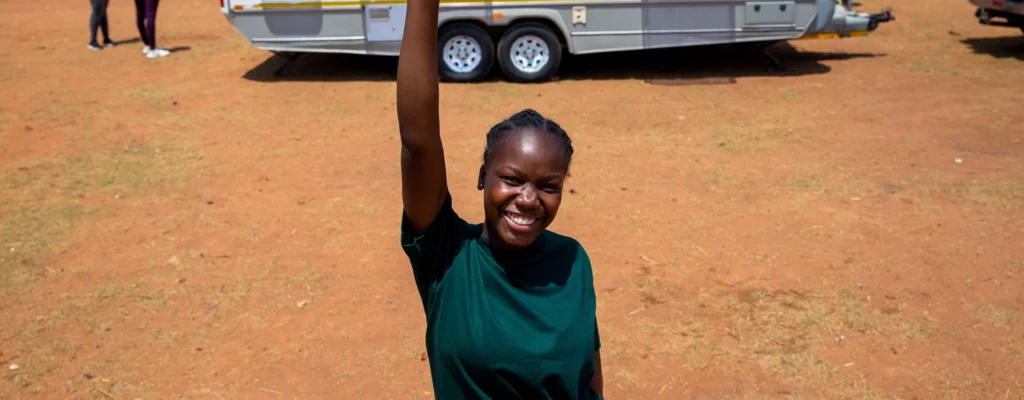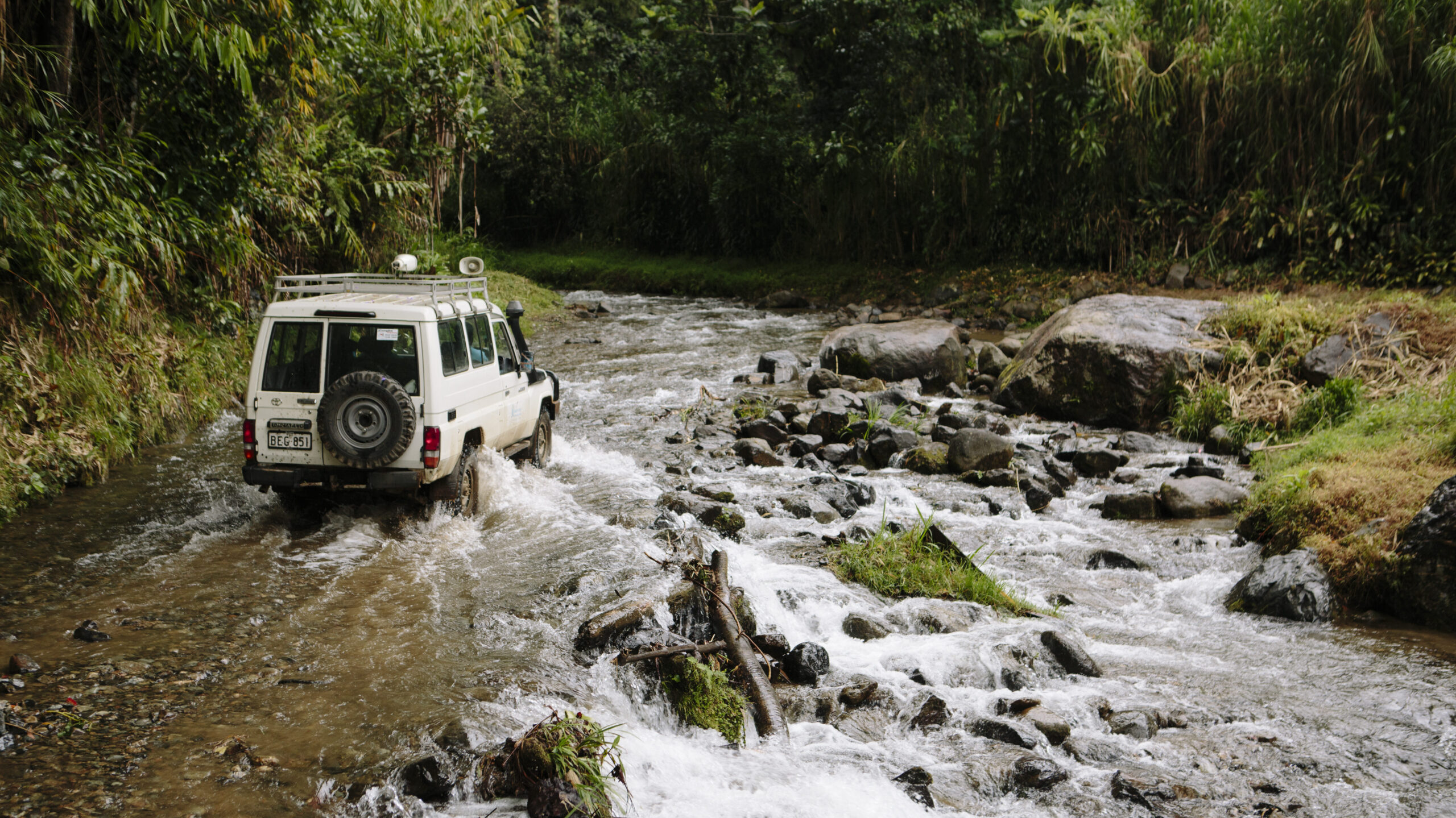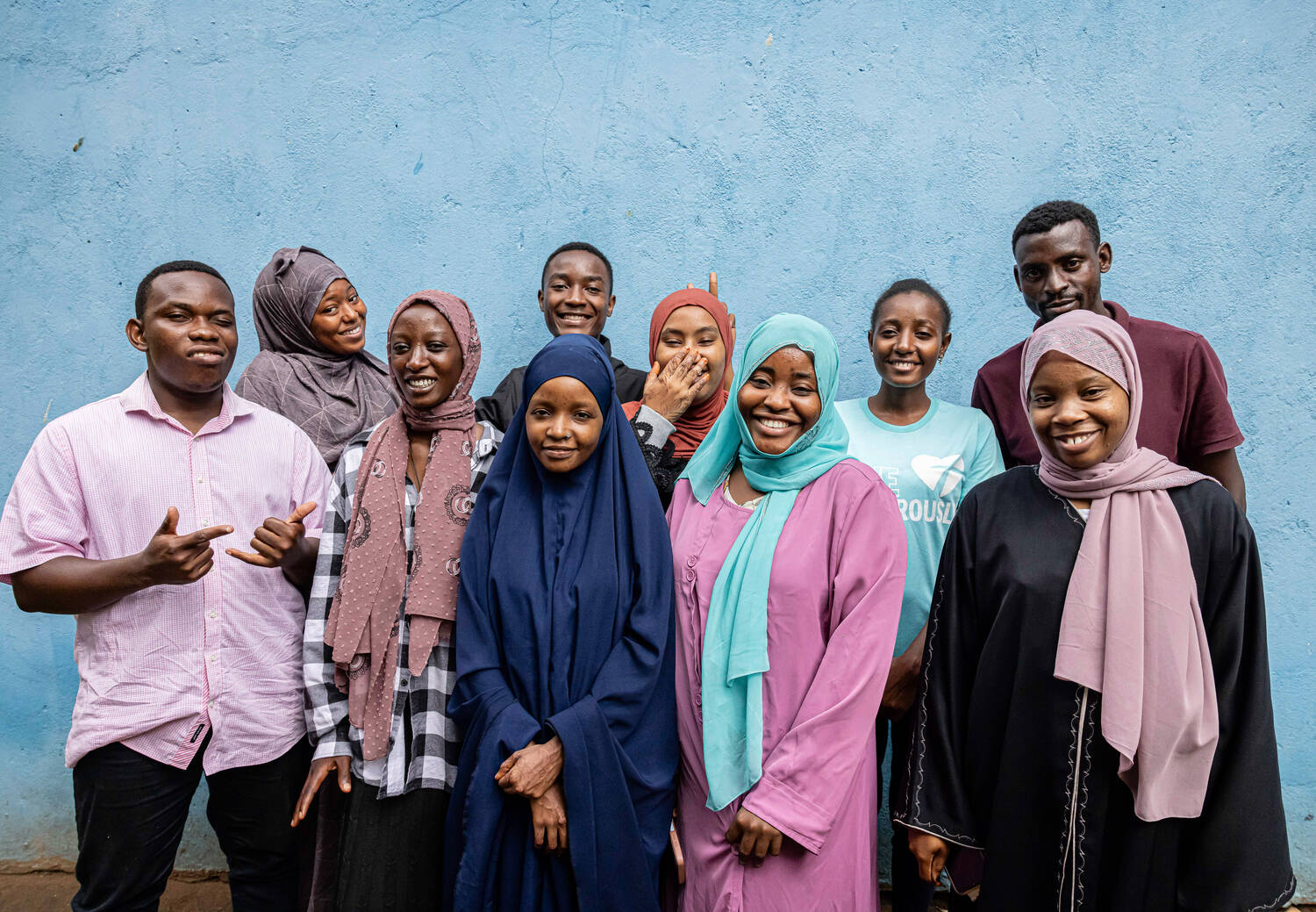
Increased stigma, poverty and longer journey times can make it harder for rural young people to access reproductive choice. Here’s how we can transform access…
Reproductive choice can be life-changing for young people. With accurate information on their health and rights, and access to adolescent-friendly services, young people can better understand their bodies, have safe relationships on their terms, avoid unintended pregnancy and determine their own futures.
Yet, globally, teenage girls find it harder to access their reproductive choices. From prevailing stigma and misinformation, to needless policy restrictions that require parental or partner consent, an estimated 23 million adolescent girls worldwide want access to contraception, but don’t yet have it. As we’ve seen across MSI’s programmes, these problems are exacerbated in rural communities, where barriers for young people are compounded with wider forms of marginalisation.
The Challenge: Closing the gap for rural adolescents
In many of the rural regions in the sub-Saharan African countries I work in, higher rates of poverty, rigid social norms, and political instability can drive young people out of education early, to marry young and start a family.
As one 16-year-old client in Tanzania shared:
“I passed my exams, but my parents refused to take me to secondary school, saying I will get pregnant anyway.”
As we shared in MSI’s Leaving no one behind report, increased stigma around contraception and longer journey times to services can make it harder for rural young people to access reproductive healthcare. And as complications from childbirth and pregnancy continue to be the highest cause of death amongst adolescent girls, this lack of access can be the difference between life and death.
Seeing first-hand the barriers that young people face and the impact on their health, lives, and futures, in 2017, MSI launched our adolescent strategy, with a focus on reaching those often left behind, including rural adolescents. Since then, we have worked with communities to challenge the social norms that can prevent young people, whether they’re in school or new mothers, from accessing choice, expanding access to adolescent-friendly, convenient, and confidential services. Here’s what we have learned along the way:
1. To build awareness on reproductive choice, you need a different entry point
In urban settings, we often work to challenge misinformation and stigma through sexual health awareness campaigns, via local press or radio and online campaigns. However, in rural settings, access to media and mobile phones is lower, and reduced education access can result in lower literacy levels and heightened stigma, making it harder to open conversations around sexual health.
In stigmatised environments, where young people can feel wary of attending activities linked with sex, broader topics, such as menstrual health, intimate hygiene, anatomy, and life skills can provide a more acceptable entry point and a unique opportunity for rural adolescents to understand their bodies – a key first step to challenging wider misconceptions. From there, we share pictorial and easy-to-read materials that are suitable for low-literacy audiences, informing adolescents of their healthcare options, while building awareness in a way that is relevant and discreet.
As one of our providers in Senegal relayed, this approach has even helped win parents over:
“Over the past months, mothers have become more engaged, as team members spoke to them about their own fertility and self-care. After that ‘in’ they could talk to them about their daughters and sons too.”
2. To increase adolescent access and choice, it takes a village
In many rural settings, trust in providers and social norms continue to drive decision-making, so when services are stigmatised, this can be challenging for young people. Peer educators, often used in urban settings, are seen to lack credibility and be prone to gossip. We found community leaders, parents, elder women, and community members who have accessed a service previously were all more influential for building awareness and destigmatising care.
As shared in our webinar on Sex, Stigma and Young People, we support community influencers to become advocates, by tailoring messaging to their context and concerns. For example, in Zambia, we engaged community Headmen by leveraging local data on teen pregnancy to demonstrate need, before showing how contraception can enable strong and prosperous families. In Kenya, we built parental support by showing how sexual health safeguards their teenagers’ futures. And in the Sahel, we used a board game to engage the community and stimulate conversations amongst men about how contraception can support them to have a healthier, more successful family.
By understanding the aspirations of adolescents, key community leaders and parents, we found we can develop approaches that resonate with everyone, while destigmatising reproductive healthcare.
3. Confidentiality is key in adapting healthcare for adolescents
What was clear throughout is that in rural settings, where there are smaller, tighter communities and closer networks, concerns around confidentiality when accessing a service are paramount. That’s why we went the extra mile to ensure adolescents can access services comfortably.
In Sierra Leone, we worked with public sector sites to deliver adolescent-only sessions, accessible via their own clinic entrance and delivered by providers trained to support young people. Elsewhere, we integrated contraceptive services into wider healthcare, for example, services for HPV vaccines or anaemia testing, providing a cover for a discreet visit. In Nigeria, we served young people first so they could have rapid visits. With these extra steps in place, we can ensure young people feel safe, making them more likely to return or refer a friend – in our 2020 client exit interviews, 86% of rural adolescent clients served at a public sector site supported by MSI reported they would be very likely to return for a service in the future.
At MSI, we know it is possible to drive access for young people at scale. In 2020 alone, MSI delivered reproductive choice to over a million adolescents globally. Yet, as we have seen across our programmes, a tailored approach in rural settings is essential.
By understanding the motivations and concerns of young people and other key decision-makers, including parents and community leaders, we can ensure awareness building activities are culturally appropriate, without wavering on our client-centred and confidential approach.
Only when all young people have access to the reproductive choices that keep them healthy and safe, and the ability to decide if or when to become pregnant, will they have the power to determine their own futures. To achieve a more equal world for all of us, we will continue to strive to provide all young people with that power and choice.
This article was written by Emmanuel Diop, MSI’s Global Marketing Specialist, who focuses on expanding reproductive choice to adolescents and other underserved communities.
It only costs £6 per year – or 2 pence per day – for MSI to provide someone with life-changing reproductive healthcare, giving them the power to decide if or when to become pregnant. This reproductive choice helps keep girls in school, supports women to lead, and helps build more equal communities. Learn more about partnering with MSI to make choice possible and subscribe to our newsletter to remain up to date on the latest news and insights.








